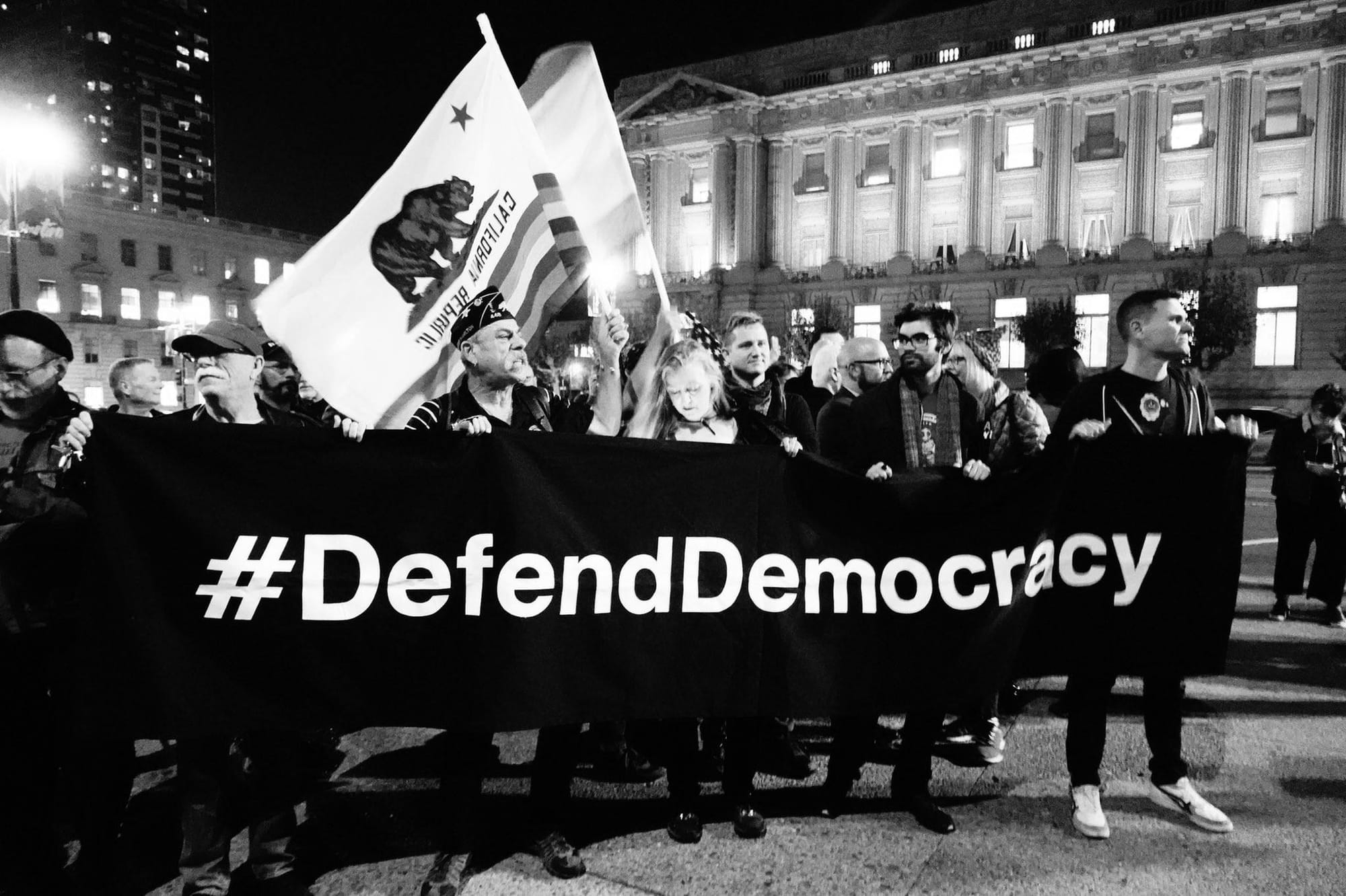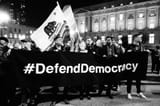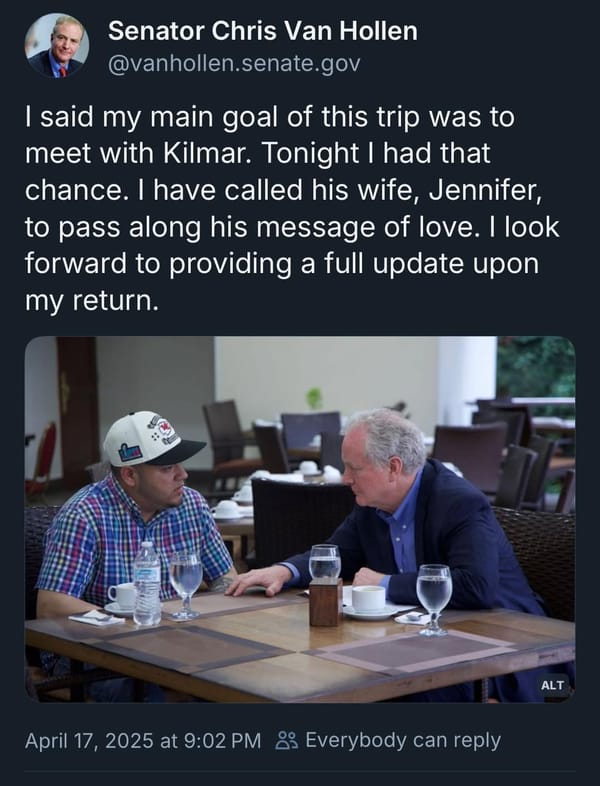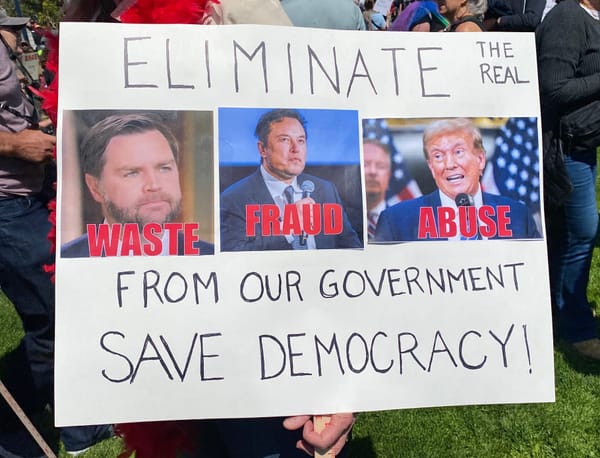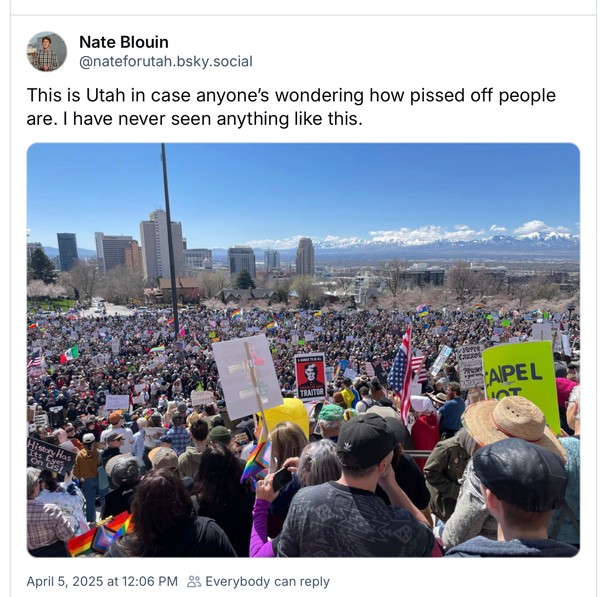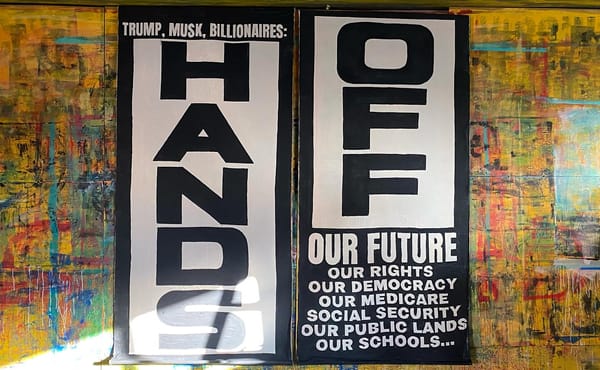It's Not Them; It's Us: Thoughts on the Show Adolescence

The new Netflix mini-series Adolescence is not about teenagers so much as it's about how adults perceive and fail to perceive teenagers. They're presented in the first two episodes as an alien life form, leading lives adults fail to see or comprehend. I've joined the tens of millions watching it and I'm a bit baffled by the attempt in the writing about the show to offload the ancient violence and hatreds of patriarchy and miseries of school onto a brand-new phenomenon, namely the internet. Because while the creations of Silicon Valley are malicious, and while they inculcate misogyny in countless ways, misogyny dates back not decades or centuries but millennia in the western world.
[Plot spoilers follow, along with discussion of violence against women.]
What drives the series is the brutal murder, the night before it begins, of a thirteen-year-old named Katie by her schoolmate Jamie. The four episodes each focus on one situation: first the arrest and processing of Jamie at the police station accompanied by his father; second, the police's attempts at his school to gather information from his peers; third, a long conversation with a psychologist evaluating him for his trial; and finally his father, mother, and sister attempting to celebrate the father's birthday while the impact of the crime on their lives undermines the attempts. As for the victim, in the third episode we find out that Katie was shamed throughout the school when a boy circulated a topless photo of her there, that the future murderer thought this shaming might make her more accessible to him and asked her out, and she (perhaps aware that he was hoping to prey on her newfound vulnerability and loss of status) mocked him briefly on Instagram.
This mockery, it's suggested, is what motivated the killing. Women have been murdered by men for rejecting them for a very long time. I know two who survived murder attempts by their exes decades ago, and it's all too common for women to be stalked, threatened, and murdered by the abusers they've left – the time when she's freed herself from his control, when she's rejected him, is often considered the most dangerous time for a woman or girl in an abusive relationship. Teen violence is a thing, but so is adult violence all the way through to old age.
But you wouldn't know that from the series, in which all the adults seem diligent and most of them haplessly ignorant about the youths they're supposed to be shepherding. And in which Jamie's father, a successful plumber named Eddie, has his own anger and self-control issues that the show's creators and many reviewers seem at best ambiguous about, at worst dismissive of or oblivious to. (The show was co-written by the actor who plays Eddie; both writers, like the director, are male; one of the producers is Brad Pitt, who himself is alleged to have committed violence against his then-wife and children.)
Lots of the writing about the series mentions the Manosphere and malicious influencers like Andrew Tate and some recent adolescent male murders in the UK, but the wider influence of the internet doesn't really surface. It's there, it's terrible, it's done more than push young men deeper into misogyny; it's made them racists, homophobes, transphobes, and easy pickings for the right, whose politicians are often expert manipulators online. It played a significant role in the election of Donald Trump, and with so many horrific things going on, the fact that the Trumps apparently invited accused trafficker and rapist Andrew Tate to the USA has been largely overlooked.
It's not just the influencers like Tate (who after his arrest in Romania for rape and trafficking of women received coverage for his huge impact on boys in the UK and who's just been accused of violent sexual assault here in the US). Less overtly outrageous online content contributes to this, and in a recent Guardian piece, Sam Wolfson writes about why Joe Rogan's and related podcasts often go on for hours: "That constant companionship is crucial to many young men in the US, who are experiencing powerful loneliness. Two-thirds of American men aged 18-23 agree with the statement 'no one really knows me.' Almost 30% of younger men reported not spending time with someone outside their household in the past week and only one in five men say they have three or more friends in their local area they can depend on." But that's not part of Adolescence, even if it's part of the problem the show seems to portray without diagnosing.
Take that loneliness and isolation. You can see so many other kinds of trouble in the series, which features two sets of fathers who, though fond, seem to have little knowledge of or relationship to their sons. Eddie, Jamie's father, seems to love his son but to have little idea of what's going on in his life and how he's looking at the world or even that he was out late the night before. Likewise the lead detective on the case expresses affection for his son Adam – at the opening of the very first episode, his son texts him he doesn't want to go to school, which tells us that he has a mobile phone and he doesn't like school. The detective both dismisses the boy's claim he's not feeling well and flatters himself in chatter with his female fellow officer that he's the soft one and that the boy's mom will dispatch him, and sure enough the father runs into his son in the latter's classroom. We see in more than one scene that Adam is bullied and insulted by his peers, but his father seems oblivious to this.
When he and his father are actually in the room together, it's clear the son finds the father frustratingly clueless about the way these kids are living out their lives on social media, as he explains the coded insults swapped in emojis on Instagram, specifically the ones Katie sent Jamie. The detective is supposed to solve one crime, but like Jamie's father – and the series' writers and director– he's not solving the situation in which all these kids' lives unfold, or all our lives unfold, or even really perceiving it. The solution cannot be to send one kid to the criminal justice system; it has to be to change it all. Not just the online stuff, not just the misogyny, but the isolation and the segregation.
The school in which the second episode takes place is chaotic, noisy, full of classrooms with videos playing, teachers coming and going, students jeering at each other, adults yelling at them, a fire alarm pulled and a disruptive evacuation staged in the absence of an actual fire. It's hell, and the question might be raised: why are these kids in hell and what are they supposed to learn there? Clearly they're learning from each other what so many American kids learn in school in their teens or even before: there's a hierarchy maintained by competition and cruelty and everyone's going to be allotted a place in it and woe betide those at the bottom.
(A lot of American schools, to my eternal horror, traditionally built up these hierarchies and inculcated conventional gender roles through competitive team sports, especially the football teams, and through cheerleaders, proms, homecoming queens and other forms of using taxpayer's money to create an all-consuming mini-society in which some are winners and some are losers. To be either one is to be taught lessons about who and what matters that are not good lessons for life. School shooters are often boys who believe in these hierarchies devoutly but resent their place in them and use murder to recalibrate their status.)
Long ago, I heard Helena Norberg-Hodge, who wrote about the alternative social models available in Ladakh's traditional societies, say that generational segregation is one of the worst forms of segregation in American society. That stuck with me, and her diagnosis could describe of much of the developed world, including the world of Adolescence. You put a whole lot of children the same age together and you set them up to compete in ways that maybe mixed-age groups would not. I always think "what do 13-year-olds have to teach 13-year-olds?" A kid that age might have something to impart to, say, an 8-year-old that would in turn make them feel experienced and valuable, learn in turn from an 18-year-old, and the company of adults is where kids might in theory learn to be adults, but kids spend far less time with their parents and other adults than they once did. Which is why they're learning from Rogan and Tate and porn. (Speaking of porn (and yes, not all porn, but a lot of it is grimly misogynist), for a truly awful view into the world of the young, read Peggy Orenstein's 2024 piece about the normalization of strangulation during sex among teenage and college-age heterosexuals, and the trauma, brain damage, and sometimes death that result.)
Kids spend a lot less time with their parents and other adults than they used to. That's partly because the neoliberal economies of the last forty years made adults spend a lot more time working. But it's also because many adults are also spending time on the internet – children in one survey I recently read complained about being neglected by parents addicted to their phones, and we've all seen parents technically spending time with their offspring but actually somewhere completely else on their phones –which is in part because the new technologies let work follow us everywhere. But I hear those conversations in passing all the time, and it's not just work.
The internet is seductive, but it's also where we go when we have no place else to go. It's a terrifying feedback loop; the more time we spend online, the more our offline lives wither away, as relationships and networks, but also habits, locations, services, practices. You can't go back to the world that existed before all this, though maybe we can rebuild it – and I've thought that one important form of resistance to the Trump Administration is going to be strengthening in-person social ties, both as equipment for resistance, and because part of why Trump won the election had to do how isolation feeds the susceptibility to misinformation.
But what's also frustrating about Adolescence is that while it's in theory a show about misogyny, it's also a misogynist show, in that it's centered almost entirely on boys and men in a situation where a girl and by extension girls and women are the victims. If Katie gets murdered by someone she barely knew for hurting his feelings – well it could be anyone, and it's a chilling reminder that men and boys too often expect deference and flattery and if they can't extort it punish instead. In the third episode, in which a female psychologist interviews him for a court assessment, Jamie grows furious and frantic when she refuses to say if she likes him; earlier he tells her she's supposed to assure him he's not ugly; he apparently expects service from women, and that expectation didn't begin with the Internet.
In the fourth episode Jamie's father Eddie blows up at his wife and then tells her to calm down, and later in the episode explodes into violence at another figure and makes a mess for someone else to clean up. I found him frightening. It's not clear that the writers and director know what they show: that he, like his son, has anger and misogyny issues and that the way his wife is placating and appeasing him is classic behavior of the partners of abusers. This unravels the idea that teenagers are being shaped by the internet, not the adults in their lives, and raises questions about the way Eddie is shown all the way to the closing scene end as a sympathetic figure. Yes, we can sympathize with flawed people; yes they should still held accountable, and so should representations of those flawed people.
Eddie's wife and sister are not with the same sympathy and depth Eddie is; the detective's wife never appears; the latter's fellow police officer is also a blank except for a brief and valuable tirade in which she talks about how she hates that the focus is on the murderer and not the victim. It's a trenchant criticism of the show, which has almost nothing to say about Katie, the dead girl, except that (via Jamie, talking to the psychologist) she was a victim of revenge porn of a sort, spread by another boy, and then said mean stuff on Instagram to Jamie. At one point Katie's best friend erupts in grief because she's lost the only person who perceived and valued her. In her words of mourning, there's a hint of more about who Katie was, and maybe a reminder that even in the hell of that school kindness and solidarity can exist.
But the series doesn't pursue the bereaved friend after she walks away from school, or pursue what it's like to be female at a school where a female student was murdered for mocking a male student. Or what it's like to be a woman in a world where men murder you for being a woman, or being unavailable, or meeting your own needs instead of theirs, or not treating them with the deference to which they believe they are entitled. This willful incomprehension or evasion is at the heart of misogyny. Katie has been erased by a knife. The rest of the women and girls have been erased by a script.

p.s. For another reading that agrees with this assessment about misogyny, I recommend this essay on Medium by Mallory Moore. And for an excellent piece about the show in the context of moral panics about teenagers, there's this piece by James Palmer.
p.p.s. I want to acknowledge there are many good schools and a great many dedicated teachers. But somehow the system has created a lot of misery and a lot of antipathy to learning.
